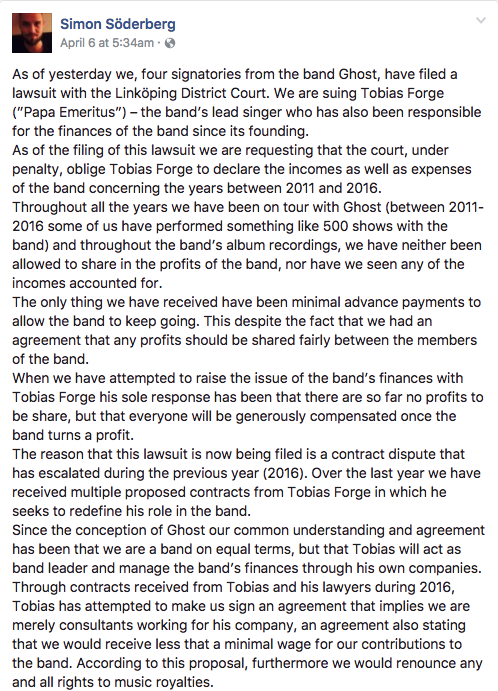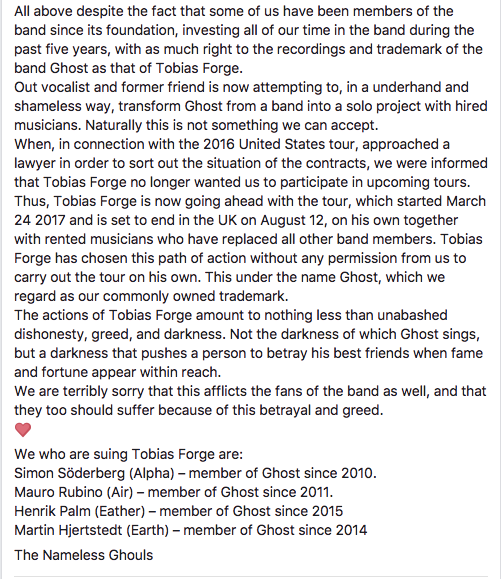Herb Your Enthusiasm
The Green Angels aren’t irreplaceable.

Like finding a new hairdresser or figuring out the best place to do your laundry in a new neighborhood, finding a weed guy is done by word of mouth. For years, I was an indefatigable mooch. When offered weed by a friendly stranger or a regular person or someone I hung out with on a regular basis, I never turned it down, and until fairly recently, I never bought my own. Part of the ethos of smoking weed is a tacit understanding of karma — the universe will eventually pay you back in kind for all the joints you smoked with new friends in the corner of someone’s dank basement apartment or in the backyard of a bar that’s no longer open.
Even though weed is not legal in New York, getting it is relatively easy. The first person I ever bought from with regularity only sold edibles — delicious chocolate-covered toffees and brittles. She was the roommate of a friend of a friend and was only halfway reliable. Our routine was the same every time. I’d go to the now-defunct breakfast taco place she used to work at, buy an iced coffee, and I’d get a brown paper bag in return. I stopped using her services after I spent an hour and a half waiting in a pissy summer rain on her doorstep, texting and peering down the street, chain smoking until I got cold and went home.
Edibles were too fussy for regular use and also way too strong — a fact I realized after consuming one, heading to a food festival in Prospect Park and becoming so overwhelmed with the options that my friend and I had to leave to take a very long nap. My next guy was a friend’s college roommate who sold garbage weed in great quantities for cheap from his Bushwick basement apartment. That worked for a while. The last time I saw him, he was glue gunning sequined pot leaves to a tank top in preparation for Burning Man. For a while, my boss arranged for her weed dude to come during work hours; I’d walk into her office under the premise of asking her a question, then slip cash onto her desk and walk away.
I wanted something easier and Green Angels, a weed-delivery service reportedly staffed by “models” was the answer. “It’s all hot girls,” said my friend who recommended them. “They’re really nice. And awesome.” Their methods were exactly as reported by the GQ piece that supposedly brought an end to their empire. I was never to mention product in our communications, texting “Wanna hang out?” instead. Once contact was established, they’d send a text with a specific time window. In the two years that I used their services, they were never late.
The “models” I was promised were a lie, though maybe all the women that came through were models and I just don’t know. Usually it was very pretty and talkative young women who were better dressed than I will ever be, always very nice and friendly and normal. Occasionally they’d send a man, but when they did I’d always get a warning text first: “Just FYI, it’s a boy angel this time :)”. A beautiful, French, possibly model toting a skateboard sold me a bag each of Green Crack and Blue Dream, followed me into my bedroom when I went to get my wallet, but stayed at a respectful distance.
Wowed by the ease with which marijuana was being delivered to my house in a reliable fashion, like a pizza or something from Amazon Prime, I recommended the Angels to everyone I talked to — part of my penance as weed-mooch for the majority of my years. I was an excellent brand ambassador, talking up a service that needed no extra help. For friends who lived out of Green Angels’s delivery range — north of 125th St. in Manhattan and most of Crown Heights and Flatbush — I served as a middleman, rattling off a list of strains and products when the delivery came, sorting through what was available and arranging discreet drop-offs. I met a friend at a Duane Reade near Times Square and passed her a cigarette pack, empty but for an eighth of Cherry Pie, while we looked at body wash; another friend met me outside of a bar on her way home from walking her dog. It was the least I could do.
A few Sundays after the GQ article came out, I realized I was running low. I sent them my usual “Hey! Wanna hang out?” text and waited. The message I had sent was green instead of the reassuring cerulean of an iMessage. Something was up. I tried again. No one ever responded, and after an hour or so, I found another delivery service and was no worse for the wear.
lol GQ killed the New York media world’s weed hookup, @joepompeo reports
It’s not hard to find weed in New York, or any other drug for that matter. For the Green Angels to be the single (or even dominant) supply chain for a group of people who perform intelligence in a semi-public forum every day is an astonishing assertion, but if it’s true it also means that the hordes seeking weed are simply not looking hard enough.
The writer of this piece wishes to remain anonymous and also wishes that you don’t do a story about their new connection, because it’s a pain in the ass to keep finding friends to vouch for them.
A Poem by Maggie Millner
Anamnesis
Tonight over the buildings
like an awning stretches down.
Like an awning
made of leather —
something chemicals and violence
have made pliant, fine
and gray. I went almost all day
without letting my grief
pass into thought. Sequestered
in a part of me I keep away from work,
my grief today was quiet
as a tooth. The living human mind,
unlike a charnel, has its rooms:
one for breathing, one for putting papers
into slots, and another
where you sit across the counter
from the idea that a man you love
is suddenly, and only,
an idea. A whole new wing
has opened up inside you, just for that.
A whole new space to stash the old machine
that used to fashion meaning
from experience: the good,
retired thresher
blooming rust. On the bridge,
the windows light
with every inch the earth pitches
through brume. They’re golden tiles
on a wall — one-fourth of some colossal,
bright, inflamed, restricted room.
Maggie Millner’s writing appears in Prelude, The Journal, TYPO, Zyzzyva, The Iowa Review Online, and other publications, and she is the recipient of fellowships from Poets & Writers, the Norman Mailer Writers Colony, and the Stadler Center for Poetry.
The Poetry Section is edited by Mark Bibbins.
Justin Walter, "Unseen Forces"
What’s the word?

Words can have astonishing power, not only by their ability to convince or sway but sometimes simply with the sense they convey. Most of us have a term or two that trips us up in a way that is completely disproportionate to the of weight of the word intended by its user. (For some of us so many words are minefields of unconscious association that we must remember to take a deep breath before reacting to them.) What’s the word that sets you off the most, the word that puts you on edge? What word makes you feel things you don’t want to feel?
It’s going to be warm and rainy here in town the next few days. Conditions could be moist well into Saturday, so I guess be set for that. Anyway, here’s the title track from Justin Walter’s terrific new album, which is out tomorrow and, as mentioned, terrific. Enjoy.
New York City, April 18, 2017

★★★★ Brilliant sun sparkled on cars even through their films of pollen. Despite the brightness all around it was cool, almost unto crispness. The thin growing leaves incandesced, on their way to becoming capable of shade. A blinding reflection came off blue mirrored sunglasses pushed high up on someone’s head. The people who had dressed for summer began to seem as if they had a case. A man strenuously worked a skateboard in side-to-side curves to get past cars waiting at a stoplight. Grate-patterned sunbeams made it onto the wall at the back of the subway platform. The viola played inside the apartment as the work rig outside squeaked and rattled down beside the window. In the five o’clock hour, a man was still out by Broadway wearing shorts and flip-flops, and a bicyclist rode by shirtless with a backpack, but the chill had grown certain again.
Popularity Isn't Cool Anymore
A billion likes is

There is a direct correlation between the number of people at a party whose names have appeared next to the word “influencer,” and the likelihood of fremdscham, the German term for vicarious embarrassment for those who lack shame. I have attended events where the flash of a phone’s camera turns otherwise rational adults into overeager strivers, dashing across the room to join group photos, shout-spelling their Instagram handles over the din.
Remember When Popularity Was Cool? Now It’s Work.
(Personally I think the flash should make everyone scatter like cockroaches, but I have also done my best to avoid events with party photographers, paid or otherwise. I find parties generally embarrassing for everyone involved, so I will often plant myself next to the least comfortable person in the room so we don’t have to talk that much and I can just savor the thick, awkward silences worthy of British television.) Anyway, this is a very good summary of social media climbing and why you hate it so much. (But I could also argue that, if John Hughes movies are to be believed, popularity has never been actually cool, and sort of misfiled as such.)
Giving Up The Ghost
Is it possible to make money in metal anymore?

“Money can’t buy you happiness, but it can buy you a yacht big enough to pull up right alongside it.” —David Lee Roth
Ghost is a hokey-ass sort of proto-metal band from Sweden (who are sometimes for legal reasons referred to, lamely, as Ghost B.C. depending on where you are because I don’t know I’m not a fucking lawyer) who showed up in 2010 with a hilariously titled debut album, Opus Eponymous (which I’m sure many were pissed they hadn’t thought of first). They donned costumes that looked like they were pulled off the set of the orgy scene from Eyes Wide Shut, and kept their identities secret. The image of their cartoonishly evil pope, “Papa Emeritus,” and his guitar-wielding minions, “The Nameless Ghouls,” was plastered over every metal-centric media outlet; they were unavoidable. When it came to the music, everything was suspiciously in place. The songs were inescapably catchy, the production was satisfying and welcoming. At a glance, all seemed right, the gimmick and the music were in harmony.
For the hardcore metalhead who’s been around since before Hot Topic fucked it all up, and who will loudly tell you all about his complete Slayer cassette collection if only you’ll give him the tiniest of windows, Ghost had the false-metal radar flashing bright red and screaming POSERS! For those of us who love metal, but also rock and pop and a good gimmick that supports but doesn’t overshadow, Ghost was a little more complicated. Opus Eponymous is full of well-written, well-recorded songs that push more nostalgia buttons than a Disney Star Wars movie. The Salem’s Lot homage on the cover ties in the horror-movie imagery that goes so hand in hand with the metal. They said things like, “‘Tis the Night of the Witch Tonight” — a la Spinal Tap’s “Tonight I’m Gonna Rock Ya Tonight” — that made you feel like they got the joke and we were all in on it together. Being in on the joke is such a huge part of what being a metalhead is these days. Of course it’s ridiculous. Of course it’s stupid. Of course it’s obnoxious and loud — that’s what weeds out the casual listener.
Fast forward to 2017: Ghost’s catalog has expanded by two more albums (one with Rosemary’s Baby cover art, and one with Amadeus), and a couple of EPs. They’ve made an EP produced by Dave Grohl (who gets to carry out his every whim because, fuck you, he’s earned it). They’ve released a single that’s really just their version of The Bangles version of “Hazy Shade of Winter.” They’ve made dildos. The jokes that made the band so appealing in the first place have run thin. The music has gotten progressively more dull, predictable and quantized to death. The halloween greasepaint is smeared and cracked; Ghost is boring. Ghost sounds like ‘Weird’ Al crooning bogus Latin phrases over karaoke versions of Blue Oyster Cult deep cuts.
If there’s anything positive to take from an act like Ghost, it’s been that at least a band this fucking strange could achieve something like mass popularity. That a bunch of dudes dressed like ghouls preaching quasi-satanic scripture could play “Colbert” and convince them to put the Zapruder film filter on it. That something resembling a heavy metal band could sell out huge venues and make a pile of money. Except now it looks like maybe not. A lawsuit filed last week in the band’s hometown of Linkoping, Sweden that was translated by a reader of Metalsucks.net (the web’s finest heavy-metal news source), paints a grim picture of the inner workings of a modern band. In addition to finally putting to rest any mystery about the band’s real-life human identities, the suit states essentially (I already told you I’m not a fucking lawyer) this: Four former members of the band have been fired by the singer, named Alfred Matthew Yankovic (Sike! His name is Tobias Forge) because they refused to sign slave contracts that entitled them to no royalties or profits, only wages as contractors who work for him.


The former Ghouls claim Forge has been dodging their questions about profits for years, and has pulled an Axl Rose by seizing control of the band that they helped bring to fame. They allege that over the past five years — a period when the band had been constantly touring, recording, selling shitloads of records (by today’s standards), winning Grammys and selling merch that has become nearly as ubiquitous as Iron Maiden tees — Forge failed to dole out any profits to the other members because he claimed there were no profits to be doled. The rest of the band now wants to see the receipts, because they think Papa Emeritus is ripping them the fuck off. (Never to be outdone by any real-life joke of a metal band, Spinal Tap has also recently filed a lawsuit where they claim profits have been concealed from them for years.) We may not know for a long time who’s right and who, if anyone, is owed how much, but it’s possible to glean from the suit a few scenarios that make the business of being in a band these days look not too pretty.
Of course, we all want to side with the perceived underdog, in this case the Nameless Ghouls Who Totally Have Names Now, but it’s possible that Forge is not ripping his dudes off and the band is still in the red. For a band this visible and this busy not to be turning a profit of any kind is hard to imagine. Do they have a Black Sabbath-sized cocaine habit? Are they chartering private jets for travel? They probably do rack up some pretty huge dry cleaning tabs. For many, or more likely, most bands, the best they can hope for when touring is to make enough money to stay on the road for a while and still have a home to go back to when the tour is over. Record sales across the music industry are in the toilet, so it’s hard to even guess at what a band could or should be taking home, but there are some numbers we can look at. According to The PRP, a metal and hardcore news site that publishes gross sales numbers from concert tickets, on a random Monday night in April of 2016 in Austin, Texas, Ghost grossed nearly $40,000. Let’s call that an average night for the band, even though it might be low. In 2016, they played somewhere in the ballpark of 120 shows, putting gross sales in the range of about 4.8 million dollars from ticket sales alone. Of course, gross sales are not net profits, but it’s already tough to imagine this band is not profitable.
How about record sales? Wellllll, they released an EP last year called Popestar that (sucked) was a Billboard no. 1, selling 21,000 copies in its first week. Their previous record, Meliora was a top-ten record that won a Grammy and sold nearly 30,000 copies in its first week. And many of those were physical CD and vinyl albums, because that’s still a thing that metalheads are interested in. In addition to the aforementioned Papa Emeritus™ dildos, Ghost’s merch has been just about everywhere these last few years. Despite the lack of publicly available evidence of sales or profits from merchandise, again, it’s nearly impossible to imagine they, or at least SOMEONE, hasn’t been raking it in.
It’s nothing new for bands to fight about money and for musicians to get ripped off. Traditionally it’s been white dudes ripping off black people, or white dudes ripping off women. In this case, it might just be another boring old case of a white dude ripping off other white dudes. Or maybe it’s something far worse than the traditional scam: maybe there’s just not much money to be made in rock or heavy metal music anymore. Some people will keep toughing it out, regardless, but as the incentives to dedicate oneself totally to a craft disappear, the quality of the work will continue to decline and it will become less and less relevant. A popular question to ask right now is, “Is rock and roll dead?” If Ghost is our example, then either it’s not possible for them to make any money and the answer is yes, it is dead or damn near it, or they are profitable, but the people making and playing the music every night still aren’t getting paid, so the answer would be yes, rock and roll is dead, it committed suicide. Either way, someone call a priest.
John Dziuban is no longer a musician, and he does not look like Elvis Costello. Metal Minutiae is an occasional column on the decline of rock music.
Novel Good, Memoir Good
Doree Shafrir’s ‘Startup’ and Patricia Lockwood’s ‘Priestdaddy’ are both books you should read.

Ready for something else to read? Here are TWO THINGS! I guess I need to tell you up top that I have huge conflicts on interest with both of them, so I am not going to be as effusive or descriptive as I would be normally, because how could you ever believe me — I have known one of these authors for more than a decade and consider her a good friend and read her book in draft and once got really drunk at a party of hers and left early without putting in for the bill which I think she is still a little irritated about, and the other one is responsible for a remarkably viral poem that was first published on one of my websites — but these are both books I enjoyed very much and think you might too, so I will just put them here and tell you why I liked them and why you might too. Your choices are a novel or a memoir, or, ideally, both.
Do you want to read a novel? Doree Shafrir’s Startup is a novel! Here’s the plot:
Mack McAllister has a $600 million dollar idea. His mindfulness app, TakeOff, is already the hottest thing in tech and he’s about to launch a new and improved version that promises to bring investors running and may turn his brainchild into a $1 billion dollar business — in startup parlance, an elusive unicorn.
Katya Pasternack is hungry for a scoop that will drive traffic. An ambitious young journalist at a gossipy tech blog, Katya knows that she needs more than another PR friendly puff piece to make her the go-to byline for industry news.
Sabrina Choe Blum just wants to stay afloat. The exhausted mother of two and failed creative writer is trying to escape from her credit card debt and an inattentive husband-who also happens to be Katya’s boss-as she rejoins a work force that has gotten younger, hipper, and much more computer literate since she’s been away.
Before the ink on Mack’s latest round of funding is dry, an errant text message hints that he may be working a bit too closely for comfort with a young social media manager in his office. When Mack’s bad behavior collides with Katya’s search for a salacious post, Sabrina gets caught in the middle as TakeOff goes viral for all the wrong reasons. As the fallout from Mack’s scandal engulfs the lower Manhattan office building where all three work, it’s up to Katya and Sabrina to write the story the men in their lives would prefer remain untold.
What can I tell you? I am not much of a novel fan, but Startup is compulsively readable. You will probably finish it in a day, because you will never find a reason to put it down. It is remarkably propulsive. There is fun to be had in trying to match characters to real life equivalents but this is fiction, so you are mostly reading for the story, and the story is how crazy this idiot world is now. The utter absurdity is pretty perfectly captured, in that everything that seems comical at first is, on reflection, perfectly plausible and may very well have been outpaced by reality by the time you read the book. Read the book!
How about a memoir? Patricia Lockwood’s Priestdaddy is a memoir! This is what it’s about:
Father Greg Lockwood is unlike any Catholic priest you have ever met — a man who lounges in boxer shorts, loves action movies, and whose constant jamming on the guitar reverberates “like a whole band dying in a plane crash in 1972.” His daughter is an irreverent poet who long ago left the Church’s country. When an unexpected crisis leads her and her husband to move back into her parents’ rectory, their two worlds collide.
In Priestdaddy, Lockwood interweaves emblematic moments from her childhood and adolescence — from an ill-fated family hunting trip and an abortion clinic sit-in where her father was arrested to her involvement in a cultlike Catholic youth group — with scenes that chronicle the eight-month adventure she and her husband had in her parents’ household after a decade of living on their own. Lockwood details her education of a seminarian who is also living at the rectory, tries to explain Catholicism to her husband, who is mystified by its bloodthirstiness and arcane laws, and encounters a mysterious substance on a hotel bed with her mother.
Lockwood pivots from the raunchy to the sublime, from the comic to the deeply serious, exploring issues of belief, belonging, and personhood. Priestdaddy is an entertaining, unforgettable portrait of a deeply odd religious upbringing, and how one balances a hard-won identity with the weight of family and tradition.
Priestdaddy by Patricia Lockwood | PenguinRandomHouse.com
What can I tell you? Patricia Lockwood is one of the great original voices of this new century and she is in total control of it here. I am wary of memoirs in general and “my wacky family” in particular, but every time this book feels like it is in danger of becoming a little too, uh, Sedarious, she pulls back and goes in a completely different direction. (She is also the first writer I have read in a long time who is able to talk about the urge to create without making me want to throw up or [MAKES “JERKING OFF” MOTION SO VIOLENTLY THAT MY ARM EJECTS FROM MY BODY AND INJURES THREE PEOPLE STANDING NEARBY].) Read the book!
Don’t take my word for it, read them both! I mean, take my word for it, but with a couple of grains of salt, because, you know, conflicts. But they’re good books! And I think I would say that even if I weren’t conflicted. I guess just buy them and we can talk about it later. Thanks.
No More Soundscan Surprises 4/13
I’m bored with myself, so I can’t imagine how you feel

The definition of “back catalog” is: “at least 18 months old, have fallen below №100 on the Billboard 200 and do not have an active single on our radio.”
No one cares about this column except me and even I no longer care about it because I know everything about America’s weird buying habits when it comes to old records and I’ll never be surprised ever again. I’m done letting me Google that for you. Ugh. Here’s your stupid weird record sales from last week. Bye forever. Instead I’ll be running pieces about heavy metal because that seems cooler and like more people will enjoy arguing about it. P.S. Dio!
4. WINEHOUSE*AMY BACK TO BLACK 3,524 copies
32. JOHNSON*JACK IN BETWEEN DREAMS 1,926 copies
64. LIL DURK SIGNED TO THE STREETS 1,440 copies
141. LIL DICKY PROFESSIONAL RAPPER 1,066 copies
193. DIO VERY BEAST OF DIO 903 copies
200. TOOL LATERALUS 887 copies
Someone Please Rescue These Poor German Exchange Students Living With Republicans
Deutschland über us (and in us)

It was bad enough to be an American watching as the leader of the free world got snubbed by Donald Trump a few endless weeks ago.
No shake: Donald Trump snubs Angela Merkel during photo op – video
Now, imagine watching that whole debacle play out as a German 17-year-old trapped in America, surrounded by bigots and guns. That’s what’s happening to some of the German Austauschstudenten (OWS-towsh-stoo-DEN-ten), or exchange students, featured in this fascinating piece in Die Zeit, who probably thought they were in for a year of laughably facile academics, cupcakes for breakfast and guaranteed prom-night action* when they signed up for an exchange program to the U.S. of A.
What they’re getting instead is a heavily air-conditioned seat in the VIP box of the apocalypse — and they’ve kindly provided the Volk back home with a glimpse. Remember “If It Happened There,” the bygone feature on Slate where Joshua Keating wrote about America like America writes about unstable war-torn fer’ners? Well, now there is here, and these marooned German teens are writing home about it.

The headline translates as “Exchange Year in the USA: NOW, OF ALL TIMES,” and it introduces the accounts of four students’ sometimes-surreal experiences as Germans accidentally adrift in Trump’s America. Jette (YET-uh), for example, a 17-year-old from Buchholz (a small town in northern Germany), describes a tense showdown with her Fox-News-watching, Target-forbidding Indiana host mom, who I am guessing was not aware of Germans’ blatant disbelief that Certain Topics are Not Fit for Polite Company when she agreed to take in an Teutonic teen who made this happen, God bless her opinionated German ass:
One time I had a big fight with my host mother, during which she really screamed her head off. I just wanted to know why they, ostensibly devout Christians, didn’t want to take in refugees. I explained to her that in Germany, I had contact with refugees through my church and got along with them great. [My host parents] asked, Weren’t you scared?
Then there’s Fietje (FEET-yeh), from Jühnsdorf, a 300-person village (which Germans charmingly, without fail, always pronounce WILL-age) in the Brandenburg region, who some sadistic bastard decided to plunk down in the middle of Idaho, and who says he sat in front of the TV alone for ten hours on election night. (That’s more intestinal fortitude than I, Fietje; the Schuman household shut off all devices at 9:30 p.m., and curled up in the collective fetal position trying not to throw up our election-night pizza.)

Granted, Fietje’s host family is “very chill,” and he “totally like[s] them a lot,” possibly because they are what Germans call religionslos (RAY-lee-gee-OWNS-lows), a non-confrontational word for “atheist,” since nobody really uses der Atheist, because according to my German friend Rica, that word contains nasty judgmental connotations against atheists! And an entire nation of people care about atheists’ feelings! WHAT?
Anyway, despite having plenty of chill, Fietje’s religion-less host dad also owns some 40 guns, which his host mom, despite being “against that,” trusts him to use correctly. “What’s dangerous,” he adds, is “the widely pervasive ignorance of anything that happens outside the US.” I’ve slanted that translation a bit; the word Fietje uses for “ignorance” is Halbwissen (HALP-viss-un), which literally means “half-knowledge,” which is the perfect way to describe classmates who ask him if Berlin is in Russia.

Over in Middle America, Nico (NEE-koh), a 17-year-old from Hamm (a small town in the Ruhrgebiet, or industrial corridor), seems to have lucked out with his family in suburban Detroit. (Also, why is it that the Germans sent someone from a teensy village to basically unpopulated Idaho, and someone from the Ruhr to what was once American’s industrial corridor? Like, do they really think Germans can’t function outside of their familiar surroundings?) Anyway, Nico’s liberal host parents are “just as interested in politics as I am,” and the whole family went out for feelings-eating ice cream after the election.
And finally there’s Pauline (pow-LEEN-uh), a 16-year-old from Hamburg on exchange in Forest Grove, in my home state of Oregon, where, she says, some 50 percent of her high school classmates are of Mexican heritage. She says the election didn’t seem real to her because the distance between the American West Coast and the East Coast (“where Trump lives”) is so vast that it spans three time zones. (For comparison, all of Central Europe is in the same time zone. Also, I just found out Russia has nine time zones, which I find abjectly terrifying.)

Anyway, Pauline says all that changed on a day in February, “when the people from Immigration Control [ICE] came to Forest Grove looking for illegal immigrants. Then, suddenly, there were clearly fewer people showing up to school.”
In some cases, it appears that these cool teens are substantially more intelligent than the host families who have taken them in. This is not surprising to anyone familiar with the German school system, which tracks students around the age of ten, sending some to Hauptschule (HOWPT-shool-uh, or vocational school) and then off to apprenticeships in trades when they’re about fifteen, and some to Realschule (ray-ALL-shool-uh, the “easy” version of high school that’s still generally more rigorous than U.S. high schools). The rest go to Gymnasium (gimm-NAS-ee-um), or college preparatory high school, which goes to the thirteenth grade and then ends in the brutal Abitur, a multi-day series of college entrance exams (for their 100 percent free universities, holy shit!), that are similar in difficulty to the orals of an American mid-level M.A. program. Kids who go on academic exchange programs are almost without fail the kids in Realschule or Gymnasium, so we’re seeing a fairly skewed sample of German youth.
Still, for the woke intellects of Pauline and Co., Americans should be grateful, grateful with approximately the same fanaticism Fietje’s chill host dad possesses for weapons. Because as tourism to the United States plummets every time Jesus commands Donald Trump to harm a poor or bomb a friend, the “soft diplomacy” (as Senator Fulbright would say) of student cultural exchange programs may be the only impression we get to provide to countries like Germany, countries we really, really, really need to like us.
You and I know that not every American family owns three dozen guns and demands fealty to only transphobic big box stores, but Die Zeit, more or less the Washington Post of Germany in terms of political leaning (but weekly), has a print circulation of half a million and an online readership many times larger—and, on a smaller but more visceral scale, the trauma of post-2016 America is going to stay with these German kids forever. I hope they get some therapy, though they probably won’t.
For, along with discussing politics in polite company (Germans, ja; Americans, nein), telling people who you voted for (weirdly, the other way around), and jaywalking (I bet you can guess which country is fer’ and which agin’!), Germans and Americans have vastly differing opinions when it comes to mental health services.
Case in point: Once, on a freezing but exhilarating trip to Berlin in the razor’s-edge dead of winter of early 2002, I got swept up into one of those ephemeral post-reunification Berlin nights that ended at 11 the next morning as I stumbled out into the dull semi-light of the day. I spent the whole time smitten (“in deep smit!”) with Florian, a biologist from Karlsruhe who seemed to be in smit just as deep — until I mentioned offhandedly, toward dawn, that of course I’d been to therapy; I lived in New York and 90 percent of Manhattan was in therapy right that second. The Kerl started looking at me like whatever icky mental illness I had was contagious, and dropped me like a hot Kartoffel. Only afterward did I learn that many Germans think anyone who’s been to therapy is irreparably damaged goods. There is, in fact, a popular novel about an anxious young woman who ends up in much-maligned therapy as a very last resort, actually called Damaged Goods, that was made into a movie, also actually called Damaged Goods:
Welp, despite national shunning of the practice, I can only hope that for their sake, as the school year draws to a close, Jette, Fietje, Nico, Pauline, and all the other unwitting soft diplomats from the last beacon of the free world manage to internalize at least the one Americanism about mental health care. And as such, I hope as part of their exit interviews, they’re allotted a few sessions of therapy for their Post-Trump Stress Disorders. (It’s cool; I heard that in America, with every visit to your therapist, you get 40 free guns.)
*based on a scientific study of the German exchange student population of South Eugene High School, Eugene, OR, 1991–1994.

